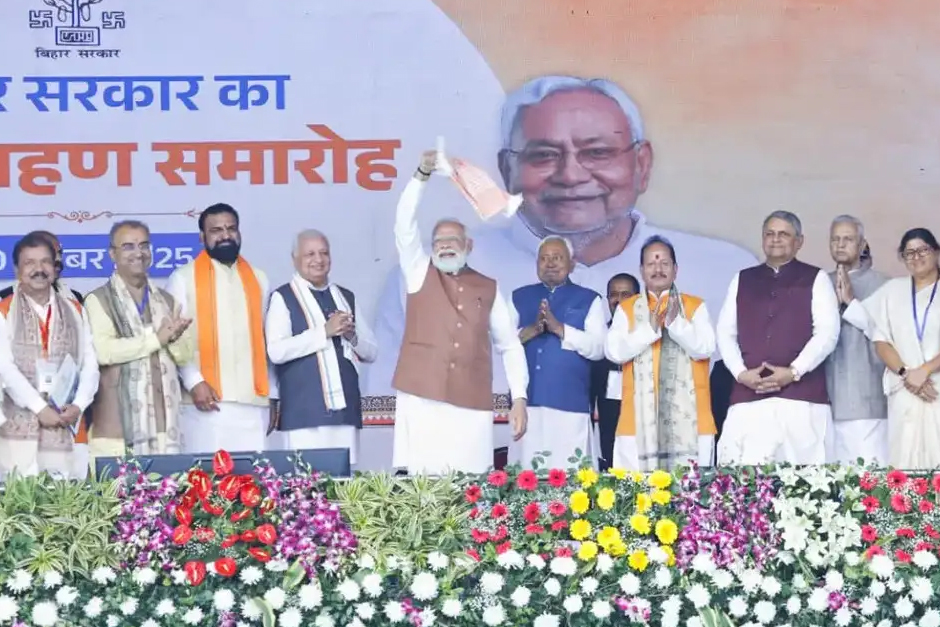Today marks a pivotal moment in Bihar’s political landscape as Nitish Kumar prepares to take the oath of office as Chief Minister for a record ninth time. The solemn ceremony, set to unfold at the iconic Gandhi Maidan in Patna, carries significant weight, not just for the state but for national politics, especially with the upcoming Lok Sabha elections. The presence of high-profile central leaders, including Prime Minister Narendra Modi and Union Home Minister Amit Shah, underscores the strategic importance of this development, signaling a renewed alignment between the Janata Dal (United) and the Bharatiya Janata Party-led National Democratic Alliance (NDA).
The Evolving Political Narrative in Bihar
The path leading to today’s swearing-in has been characterized by intense political manoeuvring, a hallmark of Bihar’s dynamic electoral history. Nitish Kumar’s latest shift sees the JD(U) returning to the NDA fold, barely eighteen months after severing ties with the BJP to form the ‘Mahagathbandhan’ (Grand Alliance) with the Rashtriya Janata Dal (RJD) and Congress. This move brings an end to the brief alliance that saw Kumar at the helm with Tejashwi Yadav as his deputy.
Nitish Kumar’s political trajectory has often been described as one of pragmatism and strategic repositioning. Having served multiple terms as Chief Minister, he has cultivated an image as a leader focused on governance and development, albeit one who is not averse to changing alliances to maintain his political relevance. His administration has overseen significant initiatives in infrastructure, education, and women’s empowerment, earning him a unique standing in Bihar politics. However, critics have often pointed to his frequent alliance switches, labelling him as ‘Paltu Ram,’ a moniker that refers to his perceived inconsistency.
The decision to rejoin the NDA is widely seen as a calculated move, possibly influenced by alleged internal frictions within the Mahagathbandhan and a desire to consolidate power ahead of the general elections. For the BJP, bringing Nitish Kumar back into the alliance strengthens its position in a crucial Hindi heartland state, potentially bolstering the NDA’s prospects nationally.
High-Stakes Attendance and National Implications
The presence of Prime Minister Narendra Modi and Home Minister Amit Shah at the oath-taking ceremony elevates the event beyond a mere state-level affair. Their attendance signifies the BJP’s full endorsement of the new political arrangement and sends a clear message of central government support for the incoming administration. This show of unity is particularly crucial as the NDA gears up for the 2024 Lok Sabha elections, where Bihar’s 40 parliamentary seats play a vital role.
The formation of the new cabinet is also keenly anticipated. While Nitish Kumar will lead, the allocation of key portfolios will reflect the power-sharing dynamics within the renewed NDA alliance. It is expected that BJP leaders will secure significant ministerial berths, ensuring a strong presence of the party in the state government. This strategic alignment aims to present a united front, projecting stability and collective leadership to the electorate.
“The frequent shifts in Bihar’s political alliances underscore the fluid nature of state politics, especially with Lok Sabha elections on the horizon. Nitish Kumar’s ability to remain a pivotal figure, despite these changes, speaks volumes about his grassroots connection and strategic acumen,” observed Dr. Anjana Singh, a political analyst based in Patna.
Challenges and the Road Ahead for the New Government
As Nitish Kumar embarks on his ninth term, the new government faces a formidable array of challenges. Addressing core issues such as unemployment, poverty, and continuing developmental projects will be paramount. Bihar, a state with significant potential, still grapples with economic disparities and infrastructure gaps, demanding sustained focus and robust policy implementation. The effective functioning of the bureaucracy and maintaining law and order will also remain critical areas of governance.
Furthermore, managing the expectations of various coalition partners and ensuring seamless coordination within the NDA will be crucial for the government’s stability and longevity. The past has shown that alliance politics in Bihar can be intricate, requiring constant communication and mutual understanding to prevent internal fissures. The upcoming Lok Sabha elections will undoubtedly influence the government’s priorities and strategies, as both the JD(U) and BJP will be keen to maximize their electoral gains.
Today’s ceremony at Gandhi Maidan is not just about a change of guard; it’s about a reset in Bihar’s political direction, with profound implications for its future and the broader national political landscape. All eyes will be on the new government’s ability to navigate these complexities and deliver on its promises to the people of Bihar.




